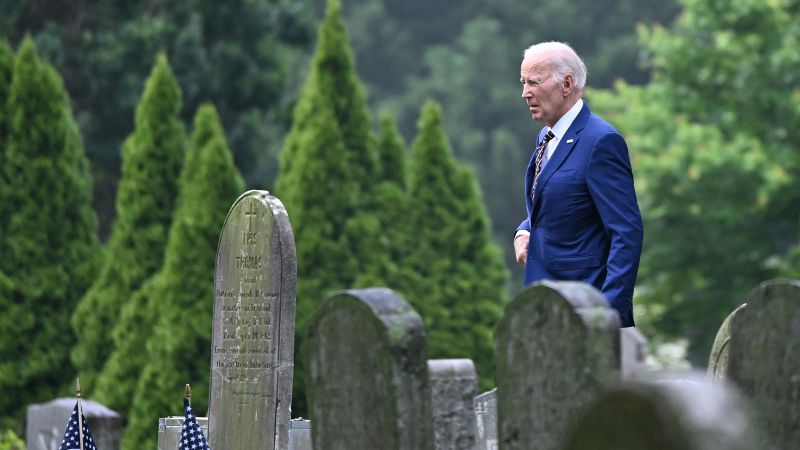On a hopeful note, former President Joe Biden publicly addressed his cancer diagnosis for the first time during a Memorial Day service in New Castle, Delaware. In a moment of optimism, he stated, “We’re going to be able to beat this,” revealing that he has recently begun treatment for an aggressive form of prostate cancer. Specifically, Biden, aged 82, shared that the cancer has metastasized to his bones, yet he expressed confidence in his prognosis.
During an interaction with reporters, including those from CNN, Biden revealed further details on his treatment plan. He mentioned that he would be on a pill regimen for six weeks before transitioning to another medication. He is being treated by a leading surgeon who himself had been diagnosed with the same type of cancer over thirty years ago. The press has since sought more details regarding the specific medication Biden is taking. Nonetheless, he reassuringly emphasized that he feels well, stating, “All the folks are optimistic,” while maintaining a positive outlook on his condition.
Biden’s remarks came in the context of rising scrutiny regarding his health, particularly as new accounts in a recent book detailed signs of decline during his last year in presidential office. When joking about perceptions of his mental competence, Biden engaged humorously, saying, “You can see that. I’m mentally incompetent and I can’t walk.” This light-heartedness was coupled with a firm rebuttal to doubts about his capacity to seek reelection. He confidently questioned critics by saying, “Why didn’t they run against me then? Because I would have beaten them.”
Moreover, the former president reflected on the current state of American and global affairs, describing this period as a significant “inflection point in history.” He asserted the import of the decisions made shortly in shaping the future landscape for the next two decades. Highlighting his accomplishments, Biden declared, “I’d put my record as president against any president at all,” reaffirming his sense of pride in his legacy.
The Memorial Day service took place on a poignant date for the Biden family, marking the ten-year anniversary of the passing of his son, Beau Biden, who succumbed to glioblastoma. During his address, Biden connected personally with the audience, conveying his gratitude for the shared experience of mourning. “Memorial Day, like for us, is deeply personal,” said Biden, acknowledging the collective weariness of grief that many attendees likely felt.
During his powerful address, he not only honored the memories of service members but also cautioned against the politicization of the military, emphasizing that American servicemen and women “don’t wear a uniform that says I’m a Democrat, or I’m a Republican.” His clear intention was to unify and inspire respect across the political divide, urging that the essence of their sacrifice transcends party lines.
Biden’s remarks emphasized the ongoing struggle to maintain democracy, noting that “every generation has to fight to maintain that democracy.” He underscored the idea that American democracy has persisted for nearly 250 years due to ordinary citizens who stepped up to defend their ideals. Throughout his speech, he called upon his audience to renew their commitment to honoring the sacrifices of those who have served.
Prominent local leaders joined Biden at the service, including Delaware Sen. Lisa Blunt Rochester and Lt. Gov. Kyle Evans Gay, amplifying the collective sentiment of remembrance. Following the service, Biden was seen at an airport in Connecticut traveling to his grandson’s high school graduation, showcasing a moment of normalcy amid significant personal and public challenges.
In the wake of his cancer diagnosis, Biden has consistently acknowledged the outpouring of support he and First Lady Jill Biden have received from the public. He recognized the universal impact of cancer, sharing that, “We are strongest in the broken places.” His final quip toward critics, asserting, “Well, I say lots of luck in your senior year,” encapsulates his enduring resilience and tenacity as he faces both health challenges and political scrutiny.



